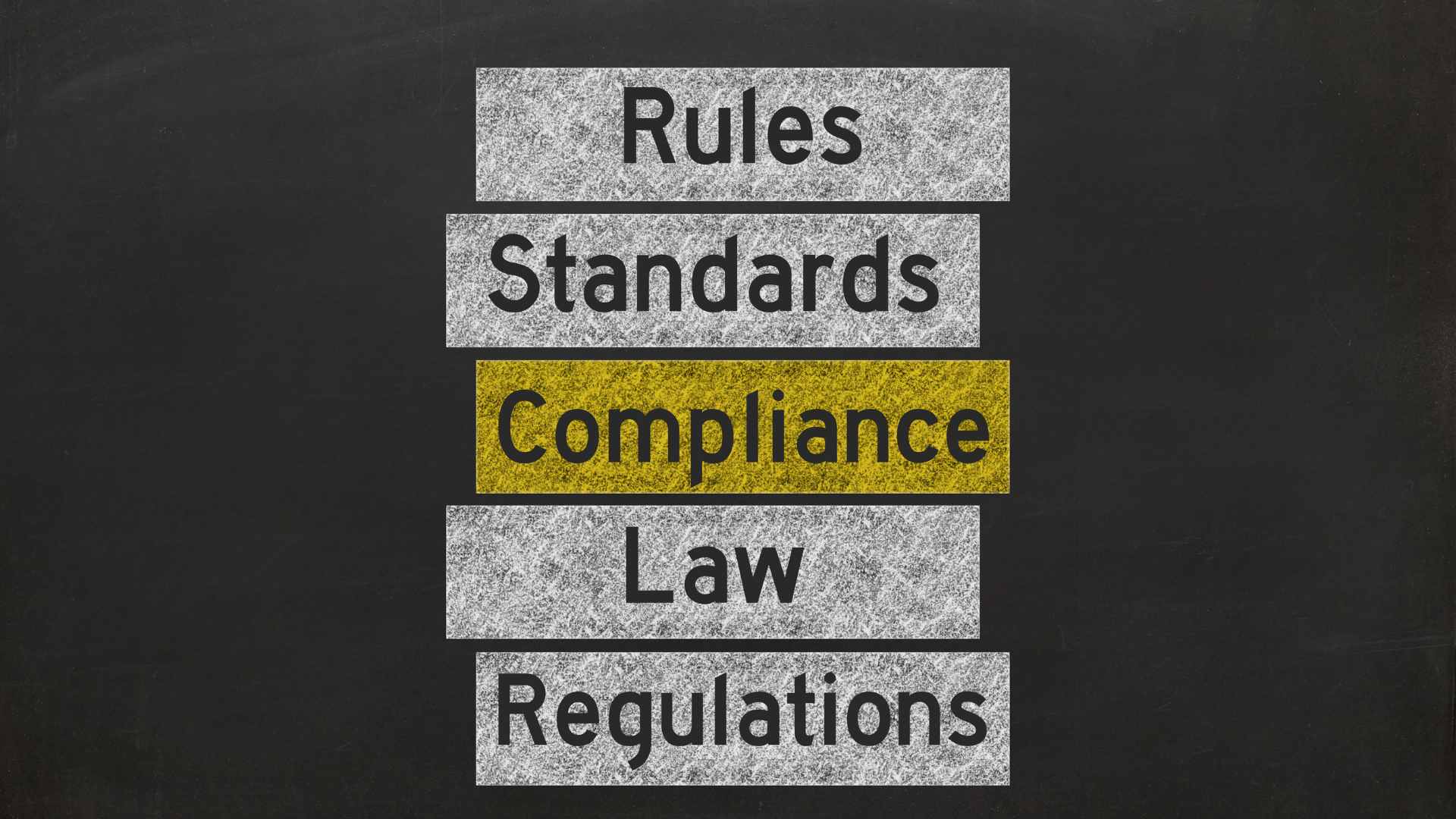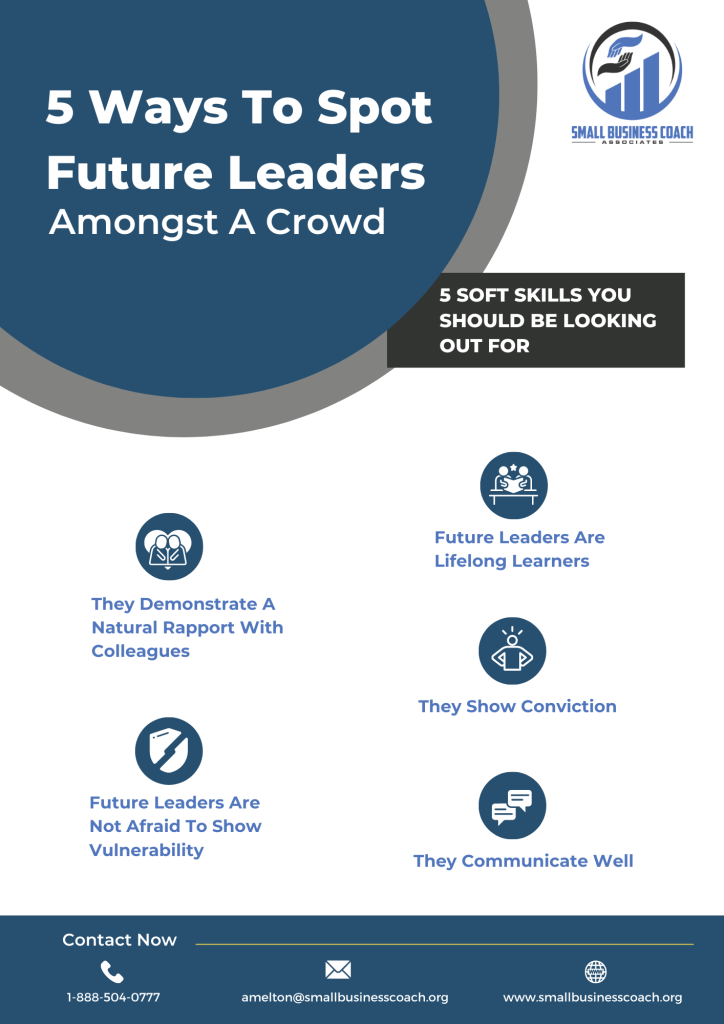VIEW BY TOPIC
- Finding Customers
- Business Systems
- Managing Employees
- Leadership
- Managing Money
Related Posts

Ready to Grow Your Business Fast?
Here’s How I Grew Five Businesses, and Eventually Sold One to a Fortune 500 Company.

Five Ways To Spot Future Leaders
Amongst a Crowd
When the business world moves at a fast pace, particularly during the turbulent times we are currently experiencing, taking the time to identify future leaders can prove difficult. In a large organization with a rich pool of potential candidates, pinpointing the individuals with leadership potential is especially difficult.
But devoting time to both identifying and nurturing future leaders is crucial. Fostering the talent within your own organization is both more cost-effective and less time-consuming in the long run than recruiting from outside the organization. You cannot risk losing your talent pool to competitors.
So, how do you spot those with leadership potential efficiently? Of course, those looking to progress in their career will need to demonstrate measurable skills like qualifications, knowledge and experience. On the other hand, those three qualities do not necessarily make for a good leader. You cannot focus on these alone.
5 soft skills you should be looking out for
Aside from measurable qualities, there are certain soft skills that will alert you to those who may become excellent leaders in the future.
Soft skills are those skills that are non technical but affect the way in which a person works. Soft skills make someone efficient, effective and productive in their work. Different roles require different soft skills.
To identify tomorrow’s efficient, effective and productive managers, you can be looking out for people in junior positions demonstrating the right soft skills right now.
Here are some behaviors that will help you find the talent you need to start nurturing now.
1. They demonstrate a natural rapport with colleagues.
Leaders should be likable, friendly and approachable. They should demonstrate a consistently positive attitude. Therefore, look out for junior colleagues who are universally liked and respected in the office. Their ability to gain rapport with almost anyone will make them an excellent candidate.
Remember to look at the most outgoing, confident people; but also look beyond the extroverts in the office. There may be others out there who are gaining the trust and admiration of others without shouting it out. These quieter people can hold just as much sway and influence as their noisier colleagues, perhaps more so. They may be perceived to be more approachable too, should times get tough.
2. They show conviction.
A strong set of core values and a sense of purpose are more soft skills to look out for.
Seek out people working with confidence and purpose, no matter what role they currently fill. They make sure their work has meaning and that they actively seek to contribute to the community within your organization. They focus their energy and attention on tasks that matter.
Conviction and purpose help a leader overcome resistance or obstacles. They can help an organization through tough and uncertain times.
3. Future leaders are lifelong learners.
Those with potential leadership qualities are always looking to invest in themselves and learn new skills. They are not afraid to admit when there is a gap in their knowledge or skill set. They will also take time to bridge this gap.
Future leaders seek opportunities to learn. Their personal development is important to them, both in their career and outside of it. They dedicate time to learning new hard skills, seek out the right professional development workshops, and aspire to gain qualifications. They show an awareness of their own soft skills and look to develop those, too.
4. Future leaders are not afraid to show vulnerability.
Unfortunately, vulnerability can seem like a negative, and not all team members will want to admit to it. However, vulnerability is something we all possess and it can be a really positive thing.
When a person acknowledges and accepts their vulnerability, they are demonstrating self-awareness. This is a good trait that helps people develop honesty, openness and empathy with others. A person who attempts to maintain a facade of perfection and invincibility cannot expect to gain the trust of others.
A person who acknowledges their own vulnerability can accept it in their colleagues, too. They know that no human is perfect. This makes an ideal person to establish and inspire a culture of honesty and respect. This is certainly a leadership quality you’ll want to nurture.
5. They communicate well.
It almost goes without saying that a leader must be an effective communicator. They must inspire confidence in their team, their superiors and the organization’s stakeholders. Being able to communicate clearly is a huge part of this.
Communication is definitely a skill that can be polished through excellent training and more experience. However, look out for the people in your organization who show signs of talent in this area. They can initiate conversations, hold other people’s attention and express their thoughts clearly. It is also important to pay attention to the ability to communicate through the written word.
The action plan on finding future leaders

Spotting potential leaders isn’t a quick and easy formulaic activity. Subtle observation, and lots of it over time, is key here. Above are some easy-to-spot qualities that should help reveal the talent to focus on.
Remember that this is a hugely advantageous use of your time. The time you invest in nurturing the leadership abilities of junior colleagues will be repaid down the line and reap countless rewards.
By starting now, you can maximize potential and minimize the risk of losing great people to other organizations.
The next step is to consider how you will nurture the talent you find. This is something that business coaching services can help with.
They will help you:
- Identify a colleague’s leadership strengths and their areas for development.
- Develop a personalized leadership development plan for each person in the program.
- Coach that person to ensure they realize their potential.
- Improve their knowledge of leadership, their ability to lead, and hone their leadership style, too.
- Help identify the right position for the right person within your organization.
Professional coaches are ideally placed to boost your organization’s productivity and positivity by improving the quality of leadership. They can help you build a positive, organized, collaborative and driven team with the next generation of excellent leaders at the helm.
AUTHOR BIO
Salma El-Shurafa is an experienced Executive Coach and founder of The Pathway Project. She is a Professional Certified Coach by the International Coaching Federation (ICF), a Certified Professional Co-Active Coach from The Coaches Training Institute (CTI) and a graduate of CTI’s Co-Active Leadership program.















